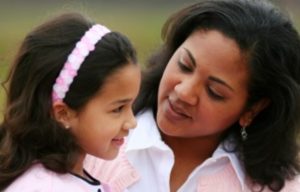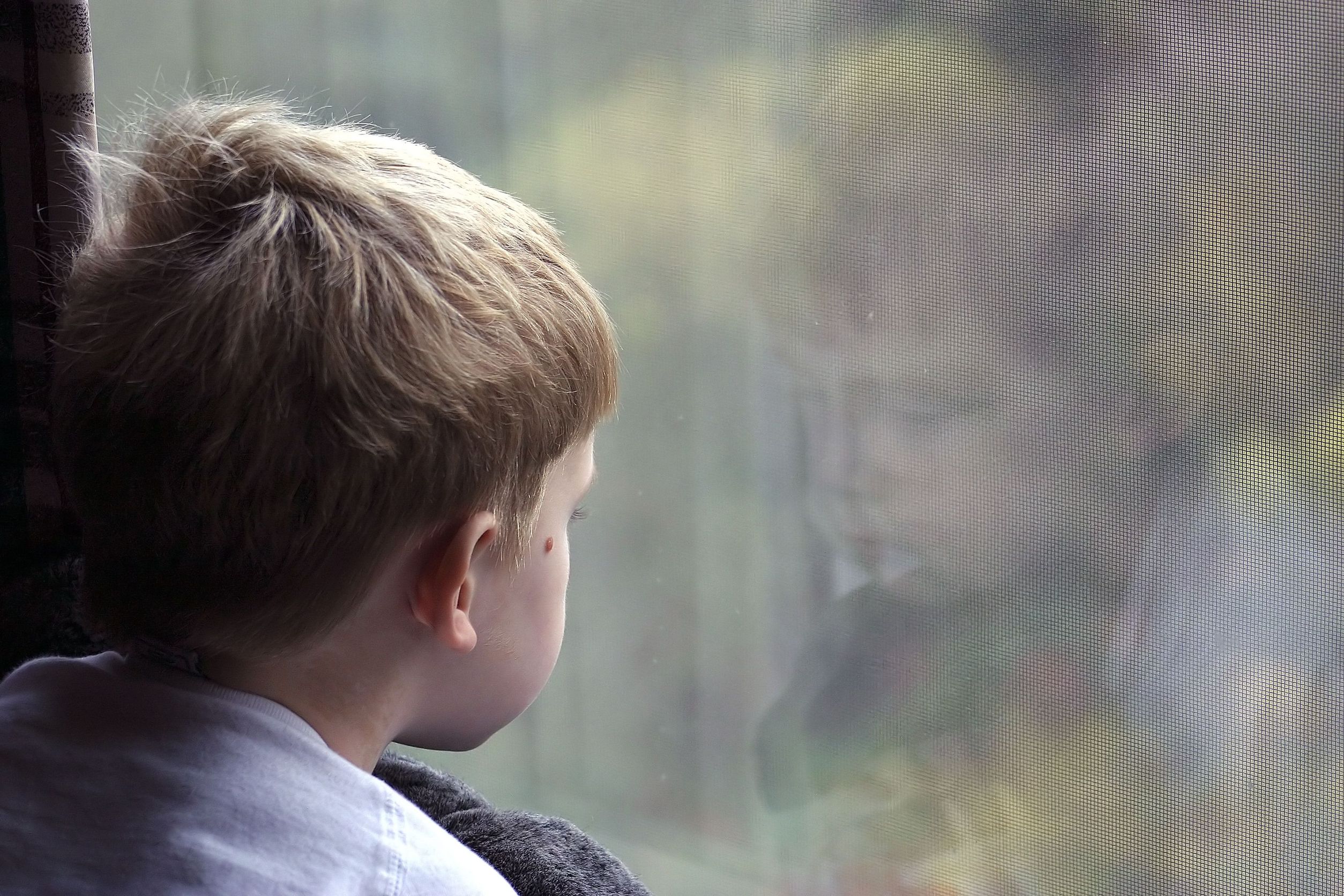Sexual Abuse Is Not Always Obvious
Abuse is always the fault of those who perpetrate, but it must be a choice on our part to take responsibility to educate ourselves to better identify possible abuse. Often the signs and symptoms of sexual abuse are also associated with other issues that may affect a child during different phases of life, such as low self-esteem, mood swings, and anxiety. The important thing is to not disregard the possibility of sexual abuse when we notice a change in behavior, and to not be afraid to ask – even if everything seems fine.
Dr. Janet Rosenzweig, author of The Sex-Wise Parent, carefully warns parents to not put too much responsibility on children to be able to protect themselves as she states, “Never forget that young children are developmentally incapable of protecting themselves from a skilled pedophile. Even the best classroom-based prevention programs in the world are useless unless adults in the community recognize the dynamics of sexual abuse of children in general and pedophiles in particular.” Unfortunately, it is not uncommon for adults make the assumption that a child would tell if they were being abused. We can do as much as we can to educate our children, but we cannot guarantee our child will not feel guilt, shame, embarrassment, or fear that this happened to them – especially if the abuser is a family member, friend, or someone of authority.
“Never forget that young children are developmentally incapable of protecting themselves from a skilled pedophile.- Dr. Janet Rosenzweig, The Sex-Wise Parent
Possible Signs of Sexual Abuse
Contrary to the belief of many, there may no visible physical signs of sexual abuse. Most often, physical signs may only be noticed when the abuse causes physical harm to the body. If sexual abuse is causing anxiety for the child, they may exhibit symptoms of stress that are often overlooked or misdiagnosed.
Physical Signs of Sexual Abuse
may include:
- Bruising of the soft or hard palate if the child was forced to perform fellatio
- Redness, abrasions, bruising, tearing or swelling of genitalia or anus
- Trouble sitting or walking
- Yeast infection, bleeding, urinary tract infection (frequent/painful urination), sexually transmitted disease, or rash
- Pregnancy
Behavioral Signs
There is no right or wrong way for a child to respond to the psychological trauma of being sexually abused and manipulated. Reading the information below, you will see that there is a wide range of reactions that a child may exhibit that have found to be associated with abuse.
- Fear of being left alone or around a specific person, or gender (ex. young children that fear men)
- Being attached and/or overly obedient to their abuser
- Demanding extreme privacy while changing, bathing etc. May wear extra clothing.
- Talking about or using sexual terms that are beyond their age
- Cruelty to animals
- Sexual aggression toward younger or smaller children
- Inappropriate sexual behavior – exposing private parts, acting out sexually on other people or with objects. May draw or play with dolls acting out sexual behavior.
- Masturbating multiple times per day and/or engaging in thrusting motions while masturbating
- Sexual promiscuity
- Moodiness, withdrawal, acting out or becoming violent or destructive, or running away, self abuse or makes self-demeaning remarks
- Acting “too perfect” – doing everything they’re told without question
- Nightmares, bed-wetting when it wasn’t an issue before
- Thumb-sucking or other self-soothing methods
- Sleeping more often or experiencing insomnia
- Chronic headaches or stomach aches
- Eating disorders – overeating or bulimia/anorexia
- Change in school grades -studying/focusing more than usual or neglecting classwork/skipping school
Sex Trafficking
It is a common assumption that victims of sexual trafficking are kidnapped, but in realty many live at home and attend school, being exploited by a family member or someone who enters into their life as a friend or romantic interest.The average age range that a child is forced into sex trafficking in the United States is 12-14 years old. Many of these children may still be living at home and/or going to school while they are forced into prostitution. Signs may include:
Frequent, unexplained absences from school
Running away from home or a lack of communication as to their whereabouts
Tattoo(s) that suggest ownership, possibly a name or marking
Showing signs of physical trauma, anxiety, and/or fear
Drug addiction
Dating someone or a “friend” that is older
Secretive and frequent communication
Concern for their safety of the safety of others
For more information about the fight to eliminate sex trafficking, visit Polaris.
Some Children Show No Signs of Abuse
It may seem impossible to believe that some children will exhibit no signs of stress, fear, or depression of sexual abuse but it is not uncommon, which is why it is important that we talk about sexual abuse and on occasion, ask our children directly if anyone has ever acted inappropriately. Here are a few reasons why children may not exhibit any warning signs:
- The child is too young or not educated about sexual abuse to know it is wrong
- The child experiences dissociation and does not remember the abuse as the brain attempts to protect itself from the trauma by blocking out memories.
- The child realizes the consequences of telling may mean being removed from the home, loss of a parent, upsetting their family, physical abuse, or other unwanted outcomes and therefore works to appear as normal as possible to avoid detection and attention.
Why Children Don’t Tell
 There are many reasons why children don’t disclose abuse immediately or for many years, even after the abuse has stopped. Almost always, an abuser has mentally and emotionally manipulated the child to maintain control and secrecy. The innocence of children is often used against them when they do not understand what is appropriate or that they do not have a choice because of their age. It is not uncommon for children to recant a previous disclosure because talking about it becomes too stressful.
There are many reasons why children don’t disclose abuse immediately or for many years, even after the abuse has stopped. Almost always, an abuser has mentally and emotionally manipulated the child to maintain control and secrecy. The innocence of children is often used against them when they do not understand what is appropriate or that they do not have a choice because of their age. It is not uncommon for children to recant a previous disclosure because talking about it becomes too stressful.
Common Reasons Why Children Don't Tell
Here are some common reasons why child survivors didn’t disclose:
- They do not have the language to tell because they were never taught what sexual abuse is and feel it is not something they are supposed to talk about.
- Sexual abuse is often pleasurable to their body as an autonomic response to stimulation, and they feel ashamed and responsible.
- They blame themselves for lacking the courage to say “no” and not disclosing immediately.
- They fear not being believed or protected if they disclose.
- They have been threatened with harm upon themselves or someone else, or a pet, for example.
- They were forced to harm another person or animal and feel responsible and ashamed for not being able to protect them.
- They fear disappointing their parents – something abusers often push upon the child to believe.
- If it is a family member, they are often afraid of disrupting the family – if a parent or other family member were to have to leave – they may wonder what would their family do.
- The abuser holds a level of power over their education, freedom, or talent and fear the consequences of retribution (for example: a teacher, juvenile probation officer, or coach).
- The abuser may make the victim feel responsible for satisfying their sexual needs – and possibly that if they don’t give in, another child will be targeted.
- A specific reason for boys and men that do not report, is the fear of being perceived as homosexual or less ‘manly’ for not being able to protect themselves, especially if abuse prevention awareness is focused on females and not males as well.
Children with Mental and Physical Challenges
It’s estimated that children with disabilities are 4 to 10 times more vulnerable to sexual abuse than their non-disabled peers.
Children with special needs are often in settings where they encounter multiple caregivers, and are often targeted in and out of their home because of their vulnerability due to the challenges they face to understand and communicate about sexual abuse. Additionally, care agencies are often excluded from training and information about how to report concerns and manage incidents of sexual abuse that do occur. Sexual abuse of children and young people causes long-term mental health difficulties, and disabled young people are not immune from these consequences. Source: Sexual Violence Against Children, by Hilary Brown
 There are many reasons why children don’t disclose abuse immediately or for many years, even after the abuse has stopped. Almost always, an abuser has mentally and emotionally manipulated the child to maintain control and secrecy. The innocence of children is often used against them when they do not understand what is appropriate or that they do not have a choice because of their age. It is not uncommon for children to recant a previous disclosure because talking about it becomes too stressful.
There are many reasons why children don’t disclose abuse immediately or for many years, even after the abuse has stopped. Almost always, an abuser has mentally and emotionally manipulated the child to maintain control and secrecy. The innocence of children is often used against them when they do not understand what is appropriate or that they do not have a choice because of their age. It is not uncommon for children to recant a previous disclosure because talking about it becomes too stressful. 




